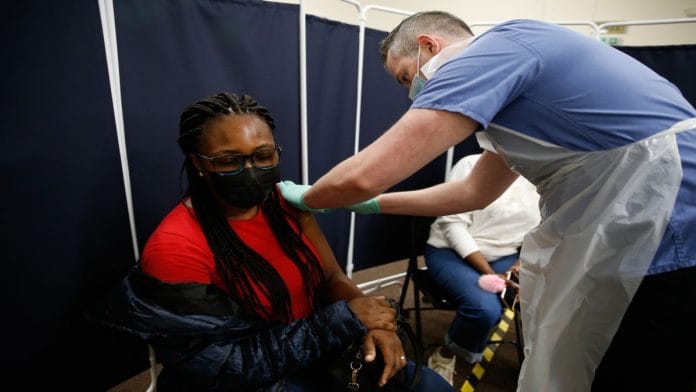New Delhi: The SARS-CoV-2 Delta variant, first identified in India, doubles the risk of hospitalisation compared to people infected with the Alpha variant, a new study published in The Lancet Infectious Diseases journal has confirmed.
The study based on more than 40,000 cases from England between March and May 2021 found that the risk of attending hospital for emergency care or being admitted to hospital within 14 days of infection with the Delta (B.1.617.2) variant was also one-and-a-half times more than with the Alpha (B.1.1.7) variant.
The study is the first to report hospitalisation risk for the Delta versus Alpha variants based on cases confirmed by whole-genome sequencing — the most accurate way to determine the virus variant.
The Delta variant was behind the devastating second wave in India that had overwhelmed healthcare facilities across the country and led to oxygen shortages for critically ill Covid patients.
“This study confirms previous findings that people infected with Delta are significantly more likely to require hospitalisation than those with Alpha, although most cases included in the analysis were unvaccinated,” Gavin Dabrera, consultant epidemiologist at the National Infection Service, Public Health England, said in a statement.
Early studies found the Delta variant to be more transmissible than Alpha, first identified in Kent.
A preliminary study from Scotland previously reported that the risk of hospitalisation doubled with the Delta variant compared with the Alpha variant.
Also read: Half of hospitalised Covid patients have persisting symptoms after a year, Lancet study says
What the new study revealed
In the new study, researchers analysed healthcare data from 43,338 positive Covid-19 cases in England between 29 March and 23 May 2021, including information on vaccination status, emergency care attendance, hospital admission, and other demographic characteristics.
Genome sequencing was conducted for the samples of the virus taken from all the patients included in the study to confirm which variant had caused the infection.
During the study period, there were 34,656 cases of the Alpha variant (80 per cent) and 8,682 cases of the Delta variant (20 per cent).
While the proportion of Delta cases in the study period overall was 20 per cent, it grew to account for around two-thirds of new Covid-19 cases in the week starting 17 May 2021, indicating it had overtaken Alpha to become the dominant variant in England.
Around one in 50 patients was admitted to the hospital within 14 days of testing positive for Covid. Researchers found the risk of being admitted to the hospital was more than doubled — a 2.26-fold increase — with the Delta variant compared with the Alpha variant.
Multiple studies have shown that full vaccination prevents both symptomatic infection and hospitalisation, for both variants.
In the current study, only 1.8 per cent of Covid cases had received both doses of the vaccine. As much as 74 per cent of cases were unvaccinated, and 24 per cent were partially vaccinated.
It is not possible to draw statistically significant conclusions about how hospitalisation risk differs between vaccinated persons who later develop Alpha and Delta infections, the study said.
The results focus on the risk of hospital admission for those who are unvaccinated or partially vaccinated.
“Our analysis highlights that in the absence of vaccination, any Delta outbreaks will impose a greater burden on healthcare than an Alpha epidemic,” Anne Presanis, one of the study’s lead authors from the University of Cambridge, said in a statement.
“We already know that vaccination offers excellent protection against Delta and as this variant accounts for over 98% of COVID-19 cases in the UK, it is vital that those who have not received two doses of vaccine do so as soon as possible,” Dabrera added.
(Edited by Paramita Ghosh)
Also read: Short-term PM2.5 exposure is deadly too — new study finds strong links to mortality in Delhi






